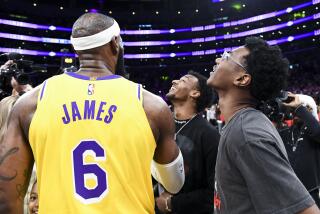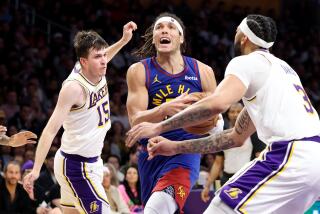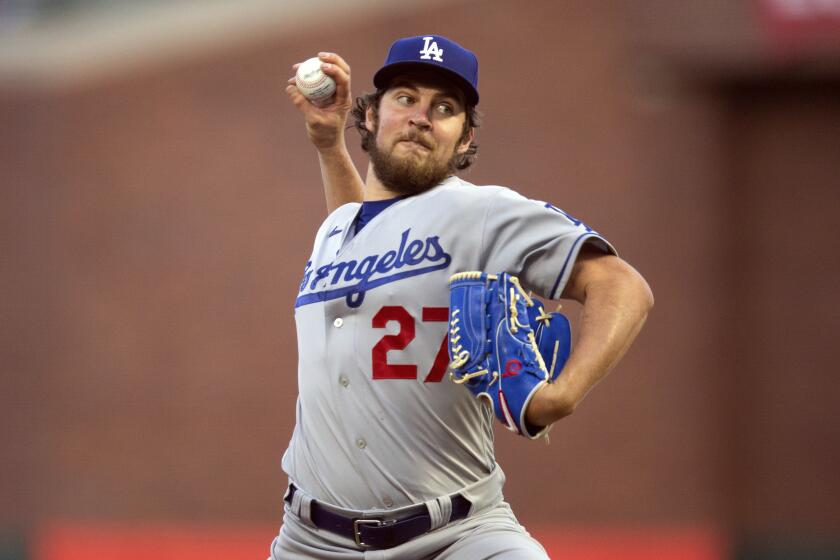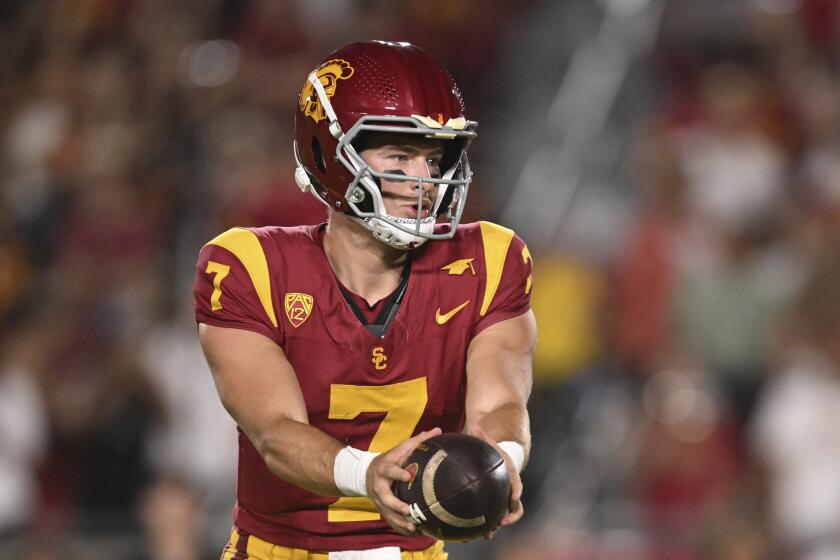Cuba’s ninth-inning gamble
Jose Contreras’ past and present will collide this week in the first World Baseball Classic. The White Sox pitcher won’t be taking the mound for any of the action. But the player Fidel Castro once nicknamed “The Bronze Titan” -- but later called a traitor -- knows how high the stakes are in his homeland.
“If Cuba wins, it is expected,” said Contreras, who defected to the U.S. in 2002. “If they lose, there will be a lot of explaining to be done.”
None of the 15 other countries in the WBC has more on the line than Cuba. The country is home to 11 million baseball fanatics -- and Castro is the national team’s de facto general manager. The sport has been played on the island for more than a century, and it is as much Cuba’s national pastime as it is our own. A poor result -- especially against the island’s longtime nemesis, the United States -- would be a national humiliation and a blow to the aging dictator.
For many years, Team Cuba enjoyed the best of all baseball worlds: It could trounce weaker U.S. teams in the Olympics, winning gold medals in 1992, 1996 and 2004 (only in the 2000 Summer Games in Sydney was it upset by a U.S. team managed by Tommy Lasorda), and it didn’t have to face major league players.
But baseball is no longer part of the Olympics; the WBC is the new stage. And for the first time since the Havana Sugar Kings played in North American triple-A leagues in the 1950s, Cubans will face some of the world’s best.
Compounding Castro’s problems is his fear of sending his best players to Puerto Rico and (if they advance to the semifinals) San Diego. Much as he would love to defeat the better-known U.S. major leaguers on their own turf, he’s naturally concerned that if he sends his top young talent, he risks more defections to El Norte.
In recent years, Contreras was one of many quality ballplayers who fled poverty and communism in Cuba to play in las grandes ligas, following the trail blazed by such stars as the brothers Livan and Orlando Hernandez.
Since 1991, an estimated 100 Cuban ballplayers have crossed the Florida Straits to play professional ball, including prized Angel prospect Kendry Morales.
The best possible Cuban national team at the WBC would include such stars as 16-year-old outfielder Dayan Viciedo and 21-year-old third baseman Yulieski Gourriel. On Team Cuba’s 60-man provisional roster, nine players are under the age of 20.
But on the team’s final WBC roster, announced Tuesday, Viciedo wasn’t there. Were Cuban officials afraid that the promising outfielder would defect?
“Cuba goes into this tournament with a lot to lose,” said Milton Jamail, the author of “Full Count: Inside Cuban Baseball.” “They want to do well, but how big a chance are they willing to take?”
On my first trip to Cuba in 1992, I visited La Esquina Caliente, or “the Hot Corner.” That’s where Cubans gather every day in the best-known park in Havana to argue baseball. Back then, I suggested to some of the aficionados that we should have a real World Series, an Olympic-style tournament in which the very best baseball players from all countries could compete.
I’ll never forget how uncharacteristically quiet La Esquina Caliente became. It was only then that I realized just how much Cubans had to lose.
Baseball fans in Cuba know the statistics, maybe even the game, better than American fans. But because of government restrictions on television and radio, and the barriers that have existed for half a century between Cuba and the U.S., they are rarely offered a glimpse of major league stars.
The first game I ever attended in Cuba was in early 1992, between the Cuban and U.S. Olympic teams (Team Cuba was in the middle of an incredible 10-year unbeaten streak in international play). The Minnesota Twins had won the World Series not long before.
As the game was about to begin, an old man, a Cuban, sat down next to me in the stands.
“Tell me about the Minnesota Twins,” he said.
I began to tell him about how it would be difficult for the Twins to repeat as champions. How they were going to lose several stars to free agency and were in a tough division.
“I know all that,” he interrupted me.
“OK,” I answered. “What do you need to know?”
“What they look like,” he replied.
To live in Cuba is to be hungry for so much that we take for granted. They have a guy on sports-talk radio in Cuba who can tell you every major league MVP or rookie of the year right off the top of his head. But he, like the old man in the stands, often doesn’t know what the stars even look like.
So, in my broken Spanish, I described the ’91 Minnesota Twins to the old man. Chunky Kent Hrbek at first base. A mustachioed Jack Morris scowling from the mound. I tried my best to describe Kirby Puckett in center field.
When I was finished, I turned back to the old man and noticed that he had tears in his eyes. He stood up, tapped me on the shoulder and said, “Thank you, now I know.”
Such is the power of the game in Cuba. And that’s how high the stakes are for it this time around.
More to Read
Get our high school sports newsletter
Prep Rally is devoted to the SoCal high school sports experience, bringing you scores, stories and a behind-the-scenes look at what makes prep sports so popular.
You may occasionally receive promotional content from the Los Angeles Times.






